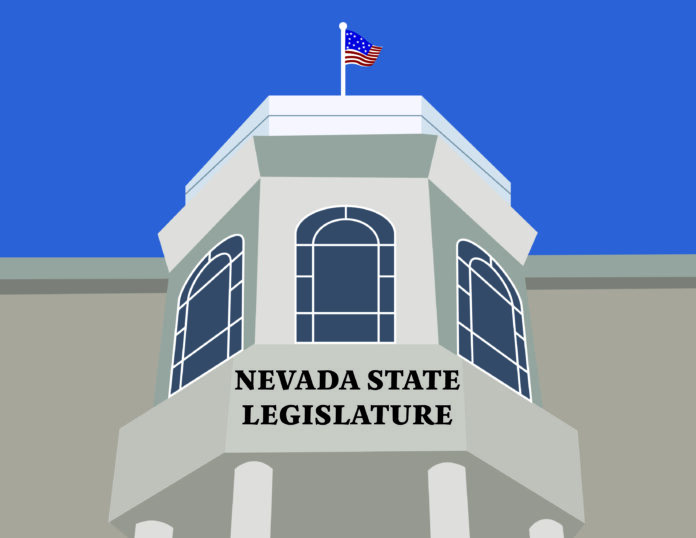The Nevada Legislature convened for its 82nd regular session on Feb. 6 in Carson City. With the start of this session, Nevada lawmakers have already started contention around a number of policy issues, one of them being higher education funding.
President Whitfield issued a public statement to the university about the start of the 82nd session expressing his thanks to Gov. Lombardo for prioritizing higher education funding increases while outlining the desired needs for the university. The message relayed in the public statement mirrored past ideas that Whitfield discussed in his State of the University address on Feb. 2. Whitfield also highlighted that UNLV is in good hands with the representation of Constance Brooks, the interim vice president for Government and Community Engagement.
“UNLV will have an ongoing presence in Carson City throughout the Legislative Session,” said Whitfield. “Dr. Constance Brooks will serve as the interim vice president of Government and Community Engagement and will be UNLV’s primary representative during the session, communicating our official positions on proposed or existing legislation.” Whitfield continued these remarks in his public statement by outlining the wealth of knowledge and experience that Brooks brings to the table.
“Dr. Brooks is well versed with the Nevada State Legislature, having served in roles in the private and public sector, including as the former Government Affairs representative for the Nevada System of Higher Education (NSHE),” said Whitfield. “Dr. Brooks and the Office of Government and Community Engagement will work with our colleagues across NSHE, the president’s cabinet, and deans to ensure we have a consistent message and that our experts are available to address the Legislature.”
Outlined in his address, Whitfield reminded professional staff members across the university that if they wish to participate in any advocacy they must adhere to certain guidelines in accordance with Nevada public record laws and the university’s Partisan Political Activity policy.
Some of these include only communicating from their personal emails, using personal stationery for hard copy letters, and indicating that they are advocating on their behalf rather than representing UNLV or NSHE.
The UNLV Office of Government and Community Engagement issued a week one update to the university that outlined a number of supported legislative proposals. “As of today, 914 bill draft requests, 129 Assembly bills, and 108 Senate bills have been submitted,” the office said. “In addition to following state budget development, as bills begin making their way through the legislative process, we will closely monitor those that may impact our higher education mission, as well as those for which our talented faculty and students can lend their expertise.”
Top themes for this year’s session that the office highlighted were: affordable housing, air quality/environment, behavioral health workforce development, criminal justice reform, dual enrollment, economic development, firearms on school and college campuses, graduate, medical education, healthcare, higher education fee waivers, immigration, K-12 education
name, image, a likeness for student-athletes, NV open meeting law, revisions to public works statutes, state employee retention, and voting rights.
UNR President Brian Sandavol echoed similar sentiment regarding higher education funding at this year’s 82nd session but outlined different themes for their university in his statement. Some of the key focuses for UNR are the cost of living for students, capital projects, and the Tahoe campus, among other topics.
The office also highlighted days of special interest to the UNLV campus. Some of the most notable ones are the NSHE Budget Hearing that takes place on Feb. 21 and UNLV Day at the Legislature on March 29.

